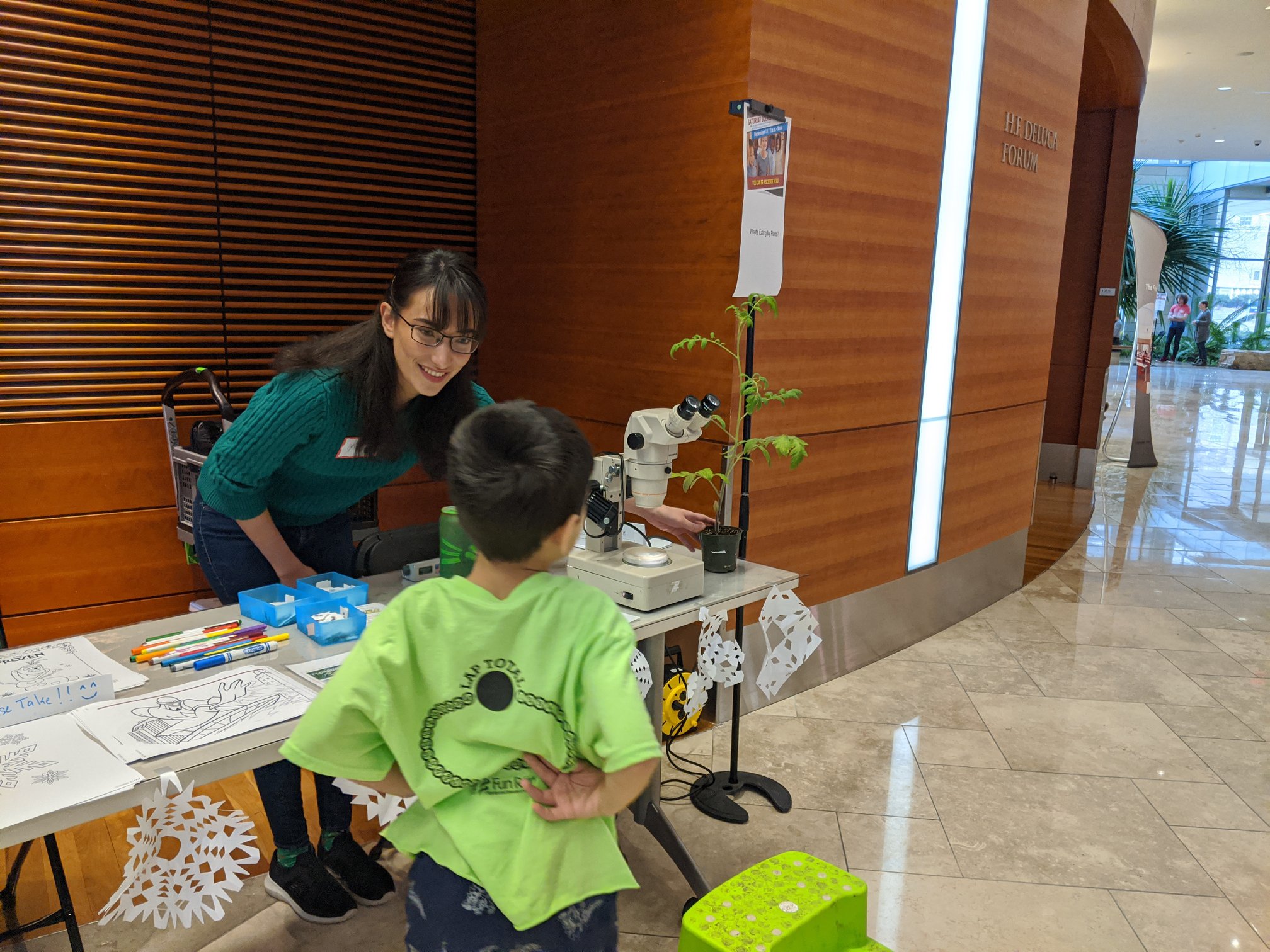Dr. Megan H. Dixon

Currently: Biosafety Speciality, UW – Madison
While in the Barak Lab, Megan investigated the influence of the pathogen Xanthomonas on promoting Salmonella enterica persistence in plants. Her research builds on existing work examining S. enterica’s ability to benefit from Xanthomonas disease through determining how Xanthomonas infection alters S. enterica movement, replication, and virulence by examining S. enterica’s fate in multiple hosts, including tomato, lettuce, and mouse. This work holds multidisciplinary significance. Our hope is that these findings will lead to wider recognition of diseased plants as a potential reservoir for S. enterica, leading to better risk assessment procedures for predicting S. enterica burden in the field that account for both climate factors and the presence of foliar disease. More broadly, the motivations of this project relates to public concerns about food safety and reduction of food waste.
Areas of Interest:
Microbial Ecology, Molecular Biology, Genetics, Plant-Microbe Interactions
Education
Ph.D. Microbiology, University of Wisconsin – Madison, 2024
B.S. Biology, Indiana University, Bloomington, IN, 2018
Honors and Awards
2023 Research grant, UW-Madison Graduate School, Office of Diversity, Inclusion and Funding for Professional Development
2023 Schrediber Foods Graduate Student Scholarship
2023 International Association of Food Protectionist (IAFP) Student Travel Scholarship
2022 Deibel Distinguished Graduate Fellowship in Food Safety
2020 Gouker Poster Award for Best Poster at Raper Symposium
2020 National Science Foundation Graduate Research Fellowship
Publications
Dixon, Megan Helig. Impacts of Xanthomonas foliar disease on the fate and biology of Salmonella enterica. Thesis. Link
Megan H. Dixon, Victoria L. Harrod, Russell Groves, Ellie Guillemette, Jeri Barak. 2023. The “friends” that help dangerous bacteria get into your salad. Front Young Minds. Link
, , , ,

Abstracts
Megan Dixon, Sonia Zaacks, Johanna Elfenbein, and Jeri D. Barak. Serving up a Salmonella Smoothie: The State and Fate of Salmonella on Romaine Lettuce. Food Research Institute Annual Meeting, University of Wisconsin – Madison. May 16-17, 2023.
Megan Dixon, Sonia Zaacks, and Jeri D. Barak. Salmonella enterica association with diseased Romaine lettuce reduces UV-C efficacy. IAFP 2023, Toronto, Ontario, Canada July 16-19.
Megan Dixon, Sonia Zaacks, and Jeri D. Barak. Water Highways: The transport of Salmonella enterica to a protective niche via plant disease. Raper Symposium, University of Wisconsin – Madison, September 3, 2021
Dixon, M. and Barak, J. Friends in Low Places: Impact of a Tomato Leaf Pathogen on Salmonella Colonization. Raper Symposium, University of Wisconsin – Madison. September 1, 2020.
Invited Talks
Megan Dixon and Jeri D. Barak. Salmonella enterica Access to the Leaf Apoplast Controlled by Plant Disease-Mediated Changes and Abiotic Factors. ASM-Microbe 2023, Houston, TX June 15-19.
Megan Dixon and Jeri D. Barak. Infection’s Slippery Slope: Impacts of Xanthomonas gardneri on apoplast nutrients. Phyllosphere 2022, Davis, CA July 17 – 21.
Megan Dixon and Jeri D. Barak. A phyllosphere water slide: taking a dip into Xanthomonas gardneri’s water-soaked apoplast. Phyllosphere Fortnight, July 28, 2021
Outreach
Megan is highly active in a student-led outreach organization What’s Eating My Plants (WEMP). Throughout the pandemic, WEMP has worked diligently to maintain their connection with the public through creation of online learning materials, coloring sheets, and educational video content posted on our YouTube channel. During this time, Megan has worn various hats in this process including digital illustrator, lesson creator, educator, actor, and social media manager.

Pre-pandemic, 2019
